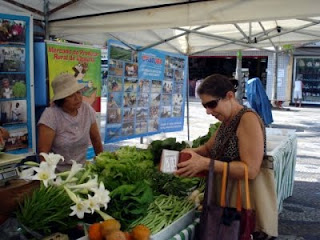The Problem: Genetic Engineering
Genetic engineering enables scientists to create plants, animals and micro-organisms by manipulating genes in a way that does not occur naturally. These genetically modified organisms (GMOs) can spread through nature and interbreed with natural organisms, thereby contaminating non-“GE” environments and future generations in an unforeseeable and uncontrollable way.
Proponents argue that genetic engineering is worth the risk because it helps alleviate the global food crisis. However, globally speaking, lack of food is not the cause of hunger. Political challenges and failures are the cause of world hunger with an estimated one billion victims. In other words, more food doesn’t necessarily mean fewer hungry.
Also, according to recent carbon footprint analysis, the entire chain of food production and consumption accounts for 20 percent of global greenhouse gas emissions. Reducing these greenhouse gas emissions and increasing the long-term storage of carbon in the soil are therefore essential measures to prevent a climate catastrophe.
The Solution: Organic Agriculture
Organic agriculture is a rapidly growing sector of agriculture that focuses on the health, ecology, fairness and care of the farming process. Organic practices use local resources and offers opportunities for increasing farmers’ income and improving their livelihood.
To feed the world sustainably into the future, fundamental changes are needed in our farming and food systems. We need a thorough and radical overhaul of present international and national agricultural policies. You can help by using your power as a consumer to buy locally grown, organic food and urging your Representatives to pass laws that protect our health and eliminate genetic engineering.
The question is: How commited are you changing the food you buy?
Some pictures of Braziliam organic fair!!
Organic agriculture is a rapidly growing sector of agriculture that focuses on the health, ecology, fairness and care of the farming process. Organic practices use local resources and offers opportunities for increasing farmers’ income and improving their livelihood.
To feed the world sustainably into the future, fundamental changes are needed in our farming and food systems. We need a thorough and radical overhaul of present international and national agricultural policies. You can help by using your power as a consumer to buy locally grown, organic food and urging your Representatives to pass laws that protect our health and eliminate genetic engineering.
The question is: How commited are you changing the food you buy?
Some pictures of Braziliam organic fair!!
Category:
Sustainable Agriculture
| 0 Comments


.JPG)
.JPG)


0 comments to “Sustainable Agriculture”